Product Reformulation
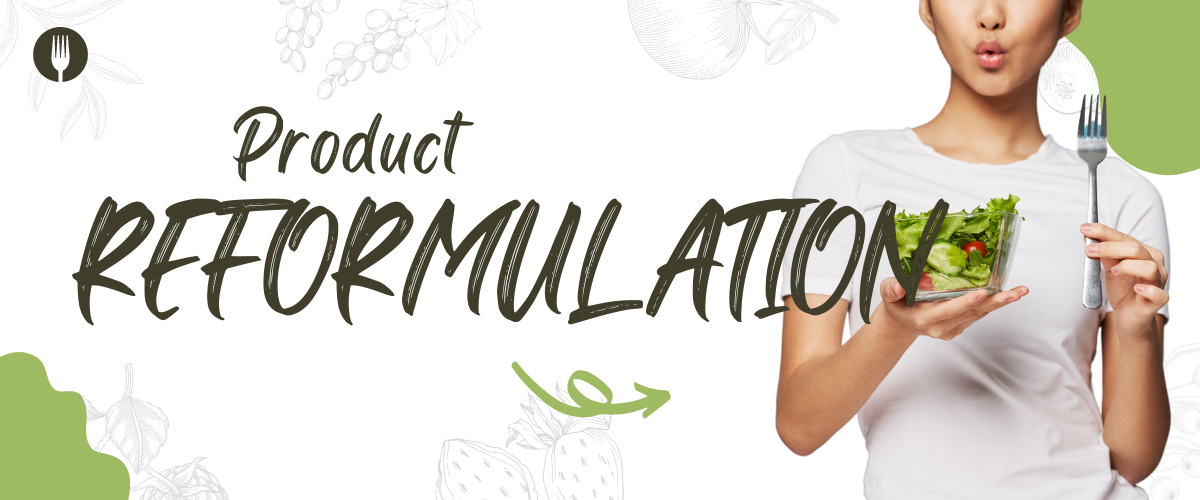
Although sugar, fats, and sodium (contained in salt) are essential for the correct functioning of the human body, high intakes of these nutrients may be harmful. For instance, high intakes of salt can cause high blood pressure, which in turn increases the risk of a heart attack and stroke. Therefore, in order to maintain and improve the health and wellbeing of their consumer-members, consumer co-operatives are committed to reducing the content of these nutrients in their own-brand products.

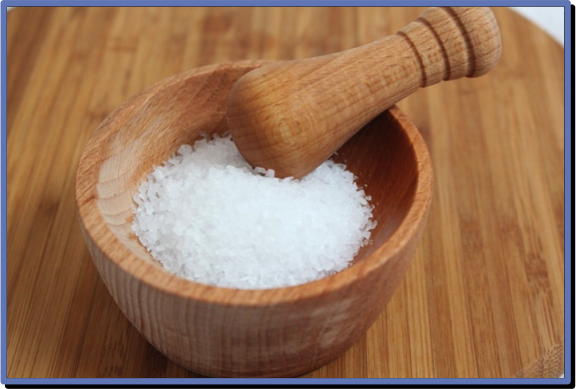 The Co-operative Group in the UK has committed to reducing the amount of salt in its own-brand products. Work began in 2006 when compliance with the original 2010 British Food Standards Agency (FSA) salt targets became mandatory for all new and re-launched Cooperative brand products. In 2011, the Group signed up to the UK Government’s Public Health Responsibility Deal which committed it to achieving salt targets for the end of 2012 which would collectively deliver a further 15% reduction on 2010 targets. During the salt awareness week that took place in March 2016, the Co-op’s commitment to reducing the salt intake of the British population was renewed. As part of this commitment, salt reduction continues to be a key part of Co-op’s product development process with 87% products now meeting the 2017 salt targets.
The Co-operative Group in the UK has committed to reducing the amount of salt in its own-brand products. Work began in 2006 when compliance with the original 2010 British Food Standards Agency (FSA) salt targets became mandatory for all new and re-launched Cooperative brand products. In 2011, the Group signed up to the UK Government’s Public Health Responsibility Deal which committed it to achieving salt targets for the end of 2012 which would collectively deliver a further 15% reduction on 2010 targets. During the salt awareness week that took place in March 2016, the Co-op’s commitment to reducing the salt intake of the British population was renewed. As part of this commitment, salt reduction continues to be a key part of Co-op’s product development process with 87% products now meeting the 2017 salt targets.
Coop Denmark is a member of the “Salt Partnership”, which works to reduce the Danish population’s intake of salt. About 70% of the salt we eat comes from food produced by the industry. Coop Denmark is constantly working to reduce the content of salt in their store produced goods.
In April 2014, Coop Sweden launched a new project to encourage people to consume less salt. Indeed, it is estimated that Swedes consume twice as much salt as the daily recommendation of 6 grams per day. Too much salt can cause high blood pressure, which in turn increases the risk of a heart attack and stroke. In the aim of reducing salt consumption among its consumers, Coop Sweden has embarked in the reformulation of 200 products with the Änglamark, Coop, and X-tra brands, including sausages, potato wedges and corn flakes. Since its beginnings, the initiative resulted in the reduction of 15.7 tons of salt. A large number of foods have been reformulated with the aim of making them healthier, without having to compromise on either taste or quality. In some products, such as a Coop Ketchup, the salt content was more than halved. For further information about which products have already been modified click here.
 Since 2012, Coop Italy adheres to the governmental program “guadagnare salute” [gain health], which aims inter alia to reduce the salt content in foodstuffs, with a particular focus on ready-to-eat frozen dishes. The aim of this program is to reduce the salt content by 10% in certain products.
Since 2012, Coop Italy adheres to the governmental program “guadagnare salute” [gain health], which aims inter alia to reduce the salt content in foodstuffs, with a particular focus on ready-to-eat frozen dishes. The aim of this program is to reduce the salt content by 10% in certain products.
Participating Co-operatives:
The Co-operative Group (UK), Coop Denmark, Coop Sweden, Coop Italy
Timeline:
The Co-operative Group: 2006 - today
Coop Denmark: not specified
Coop Sweden: 2014 - today
Coop Italy: 2012 - today
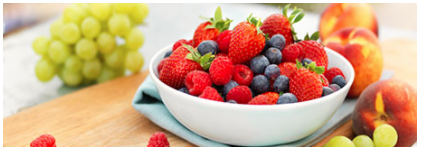 The Co-operative Group is also involved in reducing the presence of fats in their products. For instance, the removal of hydrogenated vegetable oils has been implemented for all own-brand products. Also, in 2015, the Co-operative Group removed nearly 21.5 tonnes of saturated fat from their spreads range alone.
The Co-operative Group is also involved in reducing the presence of fats in their products. For instance, the removal of hydrogenated vegetable oils has been implemented for all own-brand products. Also, in 2015, the Co-operative Group removed nearly 21.5 tonnes of saturated fat from their spreads range alone.
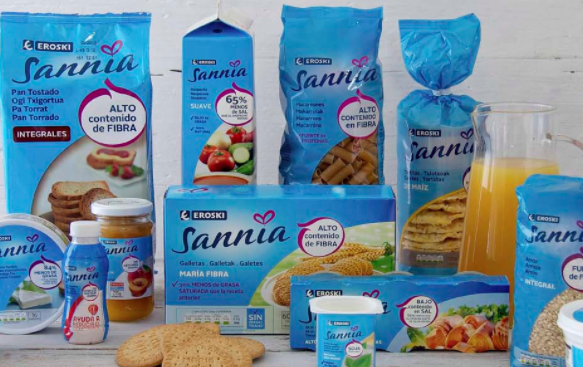 In 2009, Eroski decided to remove partially hydrogenated vegetable fats, popularly called trans fats, from their own brand products given their negative effect on our cardiovascular health. Products which do not contain trans fats can be identified by consumers with the following message: “without partially hydrogenated vegetable fat”.
In 2009, Eroski decided to remove partially hydrogenated vegetable fats, popularly called trans fats, from their own brand products given their negative effect on our cardiovascular health. Products which do not contain trans fats can be identified by consumers with the following message: “without partially hydrogenated vegetable fat”.
Participating Co-operatives:
The Co-operative Group (UK); Eroski (ES)
Timeline:
The Co-operative Group (UK): 2015 - today
Eroski: 2009 - today
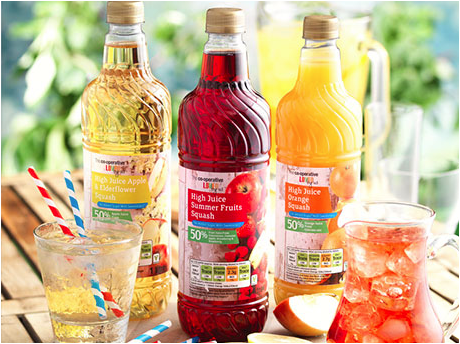 The Co-operative Group has decided to focus on soft drinks which are shown to be one of the biggest contributors to sugar in the diet of UK consumers. The Co-operative Group has therefore taken the initiative of completely reformulating their high juice and squash range to remove 100 million teaspoons of sugar and 1.5 billion calories and is currently the first retailer to boast a solely “no added sugar” own-brand squash and high juice range. This means that if each day a child drinks a glass of the “no added sugar” high juice, instead of the old “added sugar” version, their calorie intake will be reduced by 13 calories each day, i.e. 26.000 calories saved in a year.
The Co-operative Group has decided to focus on soft drinks which are shown to be one of the biggest contributors to sugar in the diet of UK consumers. The Co-operative Group has therefore taken the initiative of completely reformulating their high juice and squash range to remove 100 million teaspoons of sugar and 1.5 billion calories and is currently the first retailer to boast a solely “no added sugar” own-brand squash and high juice range. This means that if each day a child drinks a glass of the “no added sugar” high juice, instead of the old “added sugar” version, their calorie intake will be reduced by 13 calories each day, i.e. 26.000 calories saved in a year.
Participating Co-operatives:
The Co-operative Group (UK)
Timeline:
2006 - today

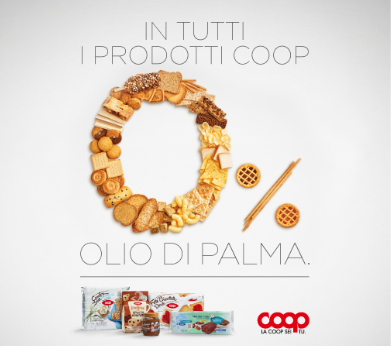 Coop Italy is the first major retailer to be “palm free” in all its own brand products. Coop Italy applied the precautionary principle and reformulated more than 200 products in order to replace palm oil. Substituting palm oil for other oils and fats has reduced the total content of saturated fats in the reformulated products.
Coop Italy is the first major retailer to be “palm free” in all its own brand products. Coop Italy applied the precautionary principle and reformulated more than 200 products in order to replace palm oil. Substituting palm oil for other oils and fats has reduced the total content of saturated fats in the reformulated products.
Products containing palm oil at the S-Group are being reformulated in order to replace palm oil with sunflower oil which contains less saturated fat, and therefore has a more positive impact on public health. Alternatively, the S Group is part of the Roundtable for Sustainable Palm Oil (RSPO)* since 2011. The S-Group is committed to using only RSPO-certified palm oil in its own brand products and supermarkets.
At Coop Norway specifically, palm oil was phased out of several foods and most Coop-branded foods are now free of palm oil (Coop’s use of palm oil has decreased by 70 tons). In products where it is not possible to remove palm oil, Coop Norway uses sustainable palm oil as per the criteria set by the RSPO*. The goals for 2017 are to use sustainable palm oil in all products as well as in feed for commodity production.
Coop Sweden is also member of the RSPO*. All own brand products are produced with sustainable palm oil; the high brand Änglamark is produced with certified sustainable organic palm oil.
The Co-operative Group is committed to labelling when palm oil is used in own brand products by explicitly displaying the presence of “palm oil” in the product instead of using the more general term “vegetable oil”. In addition, the palm oil used in own brand products is sustainable as per guidelines of the RSPO*.
*The Roundtable for Sustainable Palm Oil (RSPO) is a joint initiative of stakeholders involved in the production of palm oil. It sets criteria for sustainable palm oil production, as well as requirements for traceability.
S-Group (Finland); Coop Norway; Coop Sweden; Coop Italy; The Co-operative Group (UK)
Timeline:
2013 - today

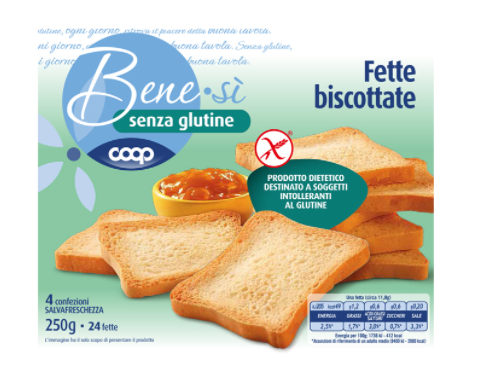 Bene.si is a range of products which meet the guidelines of a balanced and healthy diet without giving up on taste. Three specific Bene.si product lines have been developed: (1) the functional products which have been enriched with nutrients that are beneficial to health, (2) the “free from” products which do not contain a certain nutrient such as lactose or salt, and (3) gluten free products. All Bene.si products are free from artificial aromas and only contain natural flavourings. The Bene.si range includes, for instance, morning biscuits rich in fibres, ham with reduced sodium, low-fat ice cream, as well as frozen ready to eat meals. For those consumers following a vegan diet, the Bene.si product line also offers plant products, such as soy milk and rice milk, or ice cream free from ingredients of animal origin.
Bene.si is a range of products which meet the guidelines of a balanced and healthy diet without giving up on taste. Three specific Bene.si product lines have been developed: (1) the functional products which have been enriched with nutrients that are beneficial to health, (2) the “free from” products which do not contain a certain nutrient such as lactose or salt, and (3) gluten free products. All Bene.si products are free from artificial aromas and only contain natural flavourings. The Bene.si range includes, for instance, morning biscuits rich in fibres, ham with reduced sodium, low-fat ice cream, as well as frozen ready to eat meals. For those consumers following a vegan diet, the Bene.si product line also offers plant products, such as soy milk and rice milk, or ice cream free from ingredients of animal origin.
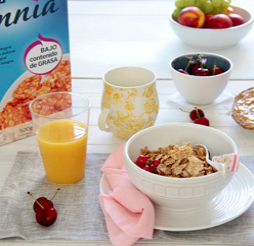 Eroski’s Sannia range offer products nutritionally balanced and healthier compared to similar products, without sacrificing flavour. For breakfast, specifically foods with less fat, salt and sugars are proposed. Also, cookies, cereals, milk bread and croissants from the Eroski Sannia range stand out for their high fibre content, being integral or being fortified with vitamins and iron. Meanwhile, new loaves contain less fat and salt, are made with sunflower oil or olive and have high-fibre content. In the case of juice, nectars Eroski Sannia of different flavours contain 60% less sugar compared to similar products and are high in vitamin C. With regards to dairy products, Sannia includes cheese without fat, butter with 65% less fat and skim milk-based drink milk enriched with Omega-3.
Eroski’s Sannia range offer products nutritionally balanced and healthier compared to similar products, without sacrificing flavour. For breakfast, specifically foods with less fat, salt and sugars are proposed. Also, cookies, cereals, milk bread and croissants from the Eroski Sannia range stand out for their high fibre content, being integral or being fortified with vitamins and iron. Meanwhile, new loaves contain less fat and salt, are made with sunflower oil or olive and have high-fibre content. In the case of juice, nectars Eroski Sannia of different flavours contain 60% less sugar compared to similar products and are high in vitamin C. With regards to dairy products, Sannia includes cheese without fat, butter with 65% less fat and skim milk-based drink milk enriched with Omega-3.
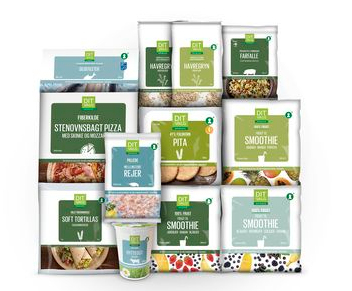 “Dit Valg” [Your Choice] is Coop Denmark’s own brand of healthy products. These products also all bear the keyhole logo. As of now, Coop has 60 “Dit Valg” products and hopes to increase this range in order to make it even easier for consumers to purchase healthy products for breakfast, lunch, and dinner.
“Dit Valg” [Your Choice] is Coop Denmark’s own brand of healthy products. These products also all bear the keyhole logo. As of now, Coop has 60 “Dit Valg” products and hopes to increase this range in order to make it even easier for consumers to purchase healthy products for breakfast, lunch, and dinner.
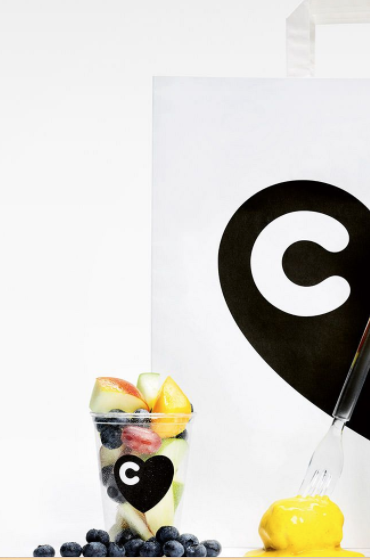 Coop Denmark also developed the C brand which makes it easier to live healthily. The C brand consists of healthy meals that are ready to eat, heat, cook, or put in a salad bowl.
Coop Denmark also developed the C brand which makes it easier to live healthily. The C brand consists of healthy meals that are ready to eat, heat, cook, or put in a salad bowl.
Coop Italy; Eroski (Spain), Coop Denmark
Timeline:
2008 - today

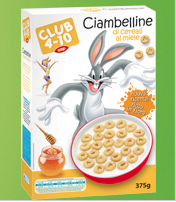 “Club 4-10” is a range of products targeted at children aged 4 to 10 years old. In view of addressing childhood obesity, Coop Italy reformulated existing products targeted to children, created new products, and removed the ones which were not in line with the scientific guidelines formulated with the support of the Italian Society for Obesity (SIO) and the European Childhood Obesity Group (ECOG). The Club 4-10 range includes snacks, cookies, filled pasta and ready meals with fish and vegetables. The recipe of Club 4-10 products foresees that specific criteria (e.g. no use of artificial aromas) are added to criteria that are already used on all Coop products (e.g. no use of hydrogenated fats). In addition, the nutrient that is considered to be most critical for a certain product is reduced by at least 30% compared to similar products that can be found on the market. For instance, the Club 4-10 range includes a snack that has 30% less fats compared to the average fat intake of other popular snacks, and an apricot content of 17.8%. The objectives of this range are to provide children with a healthy, high quality option at an accessible price and to stimulate Coop Italy competitors to follow the example. To this end, the entire Club 4-10 range reports nutritional values per 100g and per portion, indicating the energy, protein, carbohydrates, sugars, total fat and saturated fatty acids, fibre and salt content.
“Club 4-10” is a range of products targeted at children aged 4 to 10 years old. In view of addressing childhood obesity, Coop Italy reformulated existing products targeted to children, created new products, and removed the ones which were not in line with the scientific guidelines formulated with the support of the Italian Society for Obesity (SIO) and the European Childhood Obesity Group (ECOG). The Club 4-10 range includes snacks, cookies, filled pasta and ready meals with fish and vegetables. The recipe of Club 4-10 products foresees that specific criteria (e.g. no use of artificial aromas) are added to criteria that are already used on all Coop products (e.g. no use of hydrogenated fats). In addition, the nutrient that is considered to be most critical for a certain product is reduced by at least 30% compared to similar products that can be found on the market. For instance, the Club 4-10 range includes a snack that has 30% less fats compared to the average fat intake of other popular snacks, and an apricot content of 17.8%. The objectives of this range are to provide children with a healthy, high quality option at an accessible price and to stimulate Coop Italy competitors to follow the example. To this end, the entire Club 4-10 range reports nutritional values per 100g and per portion, indicating the energy, protein, carbohydrates, sugars, total fat and saturated fatty acids, fibre and salt content.
Participating Co-operatives:
Coop Italy
Timeline:
2009 - today
Latest News

Euro Coop and Partners Demand Streamlined Green Claims Directive
Brussels, 23 April 2025 – Euro Coop, together with HOTREC and Independent Retail...

Safeguarding the Single Market: Joint Call to the European Parliament on Cross-Border Enforcement of UTPs
Brussels, 22 April 2025 – Euro Coop and Independent Retail Europe have sent a joint...
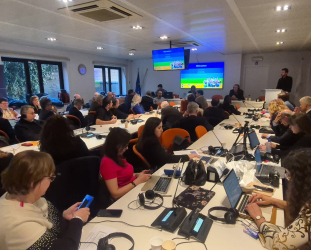
Cooperatives Driving Change: Key Events in Brussels, March 2025
As part of the International Year of Cooperatives, a series of impactful events took place in...
Latest Stories

Coop Norway’s discount chain, Extra, receives prize for healthy marketing and celebrates with additional discount on fruit and vegs
Coop Norway’s discount chain, Extra, has been recognized for its commitment to healthier...

Coop Private Label Products Shine at the 2025 European Private Label Awards
The 2025 European Private Label Awards have celebrated the achievements in store brand...

Empowering Consumers for a Sustainable Future: An Interview with HISPACOOP for World Consumer Day
On the occasion of World Consumer Day, we highlight the essential role of consumer...

